
The following is a video I made about how “Star Wars: Rise of Skywalker” fixed Rey’s character and made me love her. I was inspired by an article I wrote earlier this year. I tried to expand on it in this video. Enjoy!

The following is a video I made about how “Star Wars: Rise of Skywalker” fixed Rey’s character and made me love her. I was inspired by an article I wrote earlier this year. I tried to expand on it in this video. Enjoy!
Filed under Jack's World, movies, Star Wars, superhero movies, YouTube
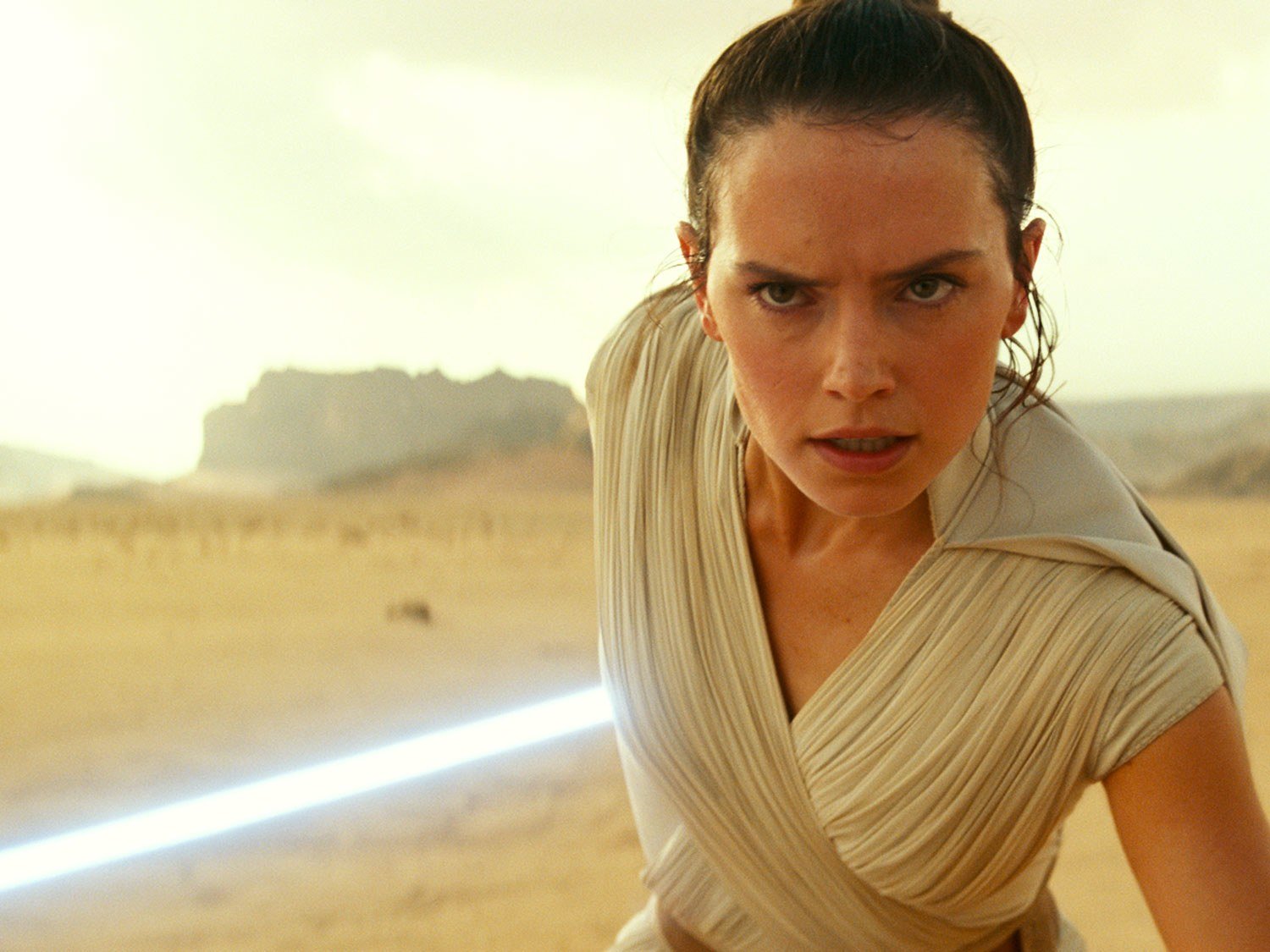
I love Star Wars.
I love watching the movies on a lazy afternoon.
I love talking about Star Wars with my friends.
However, I generally avoid talking about Star Wars online.
It’s a frustrating, but inescapable fact of life these days. Being a Star Wars fan online is like unknowingly entering a street fight, being given a rusty knife, and having to pick a side on the spot. No matter which side you pick, you’re going to piss off the other side who will forever claim that you’re not a true Star Wars fan. That usually comes after being hurled with enough insults to make you want to punch your computer screen.
It’s why I’ve rarely written about Star Wars. I did write a few pieces on Ahsoka Tano and the sequel trilogy, but I’ve resisted writing more. The current state of the fandom is just not conducive to meaningful discussions or criticism. Unless you’re talking about how adorable Baby Yoda is, you’re bound to get caught up in discussions about how “The Last Jedi” ruined the franchise forever.
I don’t care for those discussions. I have my opinions on the original, prequel, and sequel trilogy. I try not to share or discuss them online because it’s just too frustrating to deal with people who think Star Wars has become some liberal plot to spread hatred over anyone with a penis. There’s no reasoning with that crowd. Even Obi-Wan Kanobi would say those people are lost.
Despite my reservation about discussing Star Wars online, I’d like to share a sentiment in the spirit of “Star Wars Day,” also known as May the 4th be with you. As it just so happens, that sentiment involves one of the most controversial characters to come out of the sequel trilogies since Jar Jar Binks. It’s bound to earn me plenty of hatred and resentment, but I’m going to channel the strength of a Jedi and share it anyway.
“Rise of Skywalker” made Rey a great character.
I’ll give everyone a minute or so to fume.
I’ll give several more to those who despise “The Last Jedi” to insult me through their computer screen and claim I’m not a true Star Wars fan.
Are you done? Good, because this is something that really made the sequel trilogies work for me. It’s what elevated them above the sub-par prequels while also making Rey one of my favorite characters in all of Star Wars. She’s still no Ahsoka Tano, but “Rise of Skywalker” made her a character worth rooting for.
Since the movie has been out for months now, I’ll spoil the reveal that made this movie so powerful to me. Rey finds out that she’s not a nobody who was abandoned on Jakku for drinking money. She’s the granddaughter of Emperor Palpatine, also known as Darth Sidious.
It’s not the most jarring revelation in the history of Star Wars. It’s nowhere near as shocking as Darth Vader revealing to Luke that he’s his father. However, it doesn’t have to be shocking to have an impact. More than anything, this revelation gives Rey’s character greater meaning to the first two movies.
Before this revelation, I was somewhat indifferent on Rey. I didn’t hate her, but I didn’t like her as much as Finn or Kylo Ren. I know she was frequently bemoaned as a Mary Sue. While I don’t agree with that sentiment, I understand why some painted her with that label.
Even without that dreaded label, which I think is a bullshit label to begin with, I didn’t find her story that interesting. After “The Last Jedi,” she became this weird anomaly within the Star Wars universe. She just happens to be this orphan of drunks who has incredible power with the Force. Even without any formal training, she’s able to use advanced skills and take down experienced Force users like Kylo Ren.
Before “Rise of Skywalker,” I thought she just didn’t have an interesting character arc. I got that she was a good soul who wanted to do good in the galaxy. I respect that. There’s certainly a place for those characters in any story. I just didn’t find it very compelling.
Then, “Rise of Skywalker” changes that by making her the granddaughter of Emperor Palpatine. Suddenly, that arc becomes a lot more interesting. She’s not just a sad little orphan girl. She carries the legacy of the galaxy’s most infamous despot. All that good she sought to do now becomes a lot more meaningful.
It also becomes a lot more dramatic in that it give greater weight to her journey in the previous movies. When I go back and watch the previous two movies, I don’t just see Rey as this hapless soul who got caught up in this galaxy-wide conflict. I see someone who carries the burden of being a Sith Lord’s granddaughter.
It’s a burden similar to what Luke Skywalker endured in the original trilogy. I would argue it’s greater for Rey because Darth Vader wasn’t pure evil. He was a fallen Jedi who Luke fought to redeem, eventually succeeding in “Return of the Jedi.” There’s no redeeming someone like Palpatine.
He’s not just a powerful Sith Lord. He’s the embodiment of hate and tyranny. He’s never going to see the light. He can only ever be stopped and Rey has to be the one who stops him. To save the galaxy and break free of this burden, she has to kill her grandfather. It a powerful struggle, which she even tries to run from at one point. When she ultimately succeeds, it’s as beautiful as it is satisfying.
I went into “Rise of Skywalker” with mixed feelings about Rey. I came out a genuine fan of hers. Now, I see her as one of the best parts of the sequel trilogy. I also count “Rise of Skywalker” as one of my favorite Star Wars movies. I know that’s not a popular sentiment, but I’m not apologizing for it.
What made “Rise of Skywalker” feel even more satisfying over time was how some fans managed to figure out her heritage. Below is a video from the YouTube channel, Nerd Soup, that predicted Rey’s link to Palpatine with brilliant detail. The fact that this movie was uploaded on December 10, 2017, nearly two years before “Rise of Skywalker” came out, makes it even more impressive.
Regardless of how hostile certain fans get, Star Wars will always be near and dear to my heart. Thanks to “Rise of Skywalker,” Rey is one of my favorite characters. She’s still not my favorite, as that title still belongs to Ahsoka Tano, but she’s proven herself worthy of this wondrous galaxy far, far away. If you don’t agree with me, then that’s fine.
With that said, Happy Star Wars Day to all. May the 4th be with you.

Recently, I saw “Star Wars: Rise of Skywalker.” People tried to spoil it for me. People tried to give me reasons not to go see it. I still saw it and I loved it. It was, in my opinion, the best of the sequel trilogy.
Having said that, there’s a reason why I haven’t written about it or done a full review, as I’ve done before. That reason has less to do with why I loved the movie and more to do with all the whining about it by a small, but vocal segment of the fandom. I won’t name names or cite outlets because they don’t deserve the publicity. The most they deserve is pity and a galactic-sized middle finger.
The most I’ll say about this movie is it’s great. It caps off the story. It has so many wonderful moments that are worth celebrating and if you like it, don’t let some asshole tell you you’re flawed because of it. You’re not. You like what you like and others don’t. Some people are just assholes about it.
That said, you’ll find plenty of YouTube videos and articles criticizing this movie to no end. They say a lot without telling you anything of substance. So, as a service to both Star Wars fans and people who are generally opposed to assholes, here’s all their criticism summed up in a single gif.

You’re welcome and may the Force be with you.
Filed under movies, outrage culture, superhero movies

There are a handful of character types that tend to evoke a collective groan from most audiences. Being an ardent comic book fan, as well as a general fan of sci-fi, romance, and fantasy, I’ve listened to those groans and even contributed to them. At a time when it’s easier than ever to share opinions and/or voice frustration, these frustrating characters tend to be more vulnerable than ever.
Chief among those groan-inducing characters is the dreaded Mary Sue. Chances are you’ve heard that cute little colloquialism after browsing gaming and sci-fi message boards for more than five minutes.
Usually, it applies to a female character, but can just as easily fit apply to a male character as well, often in the form of the equally groan-inducing label of Gary Stu. Sometimes it’s a criticism of a character. Sometimes it’s a flat-out insult. In most cases, it rarely has a positive connotation.
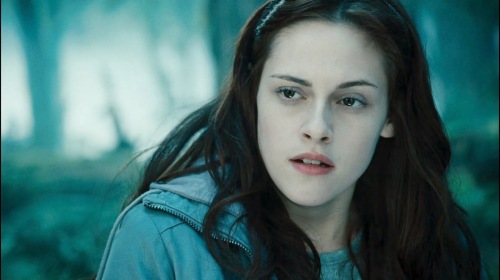
It’s for that reason that characters slapped with the Mary Sue label tend to be either controversial or destructive to an underlying narrative. Many writers, myself included, go out of their way to avoid crafting characters that might attract that label. I certainly made that effort when I wrote “Skin Deep” and “Passion Relapse.” I doubt I’m the only one who tries to avoid it.
These days, though, there’s one particular character getting slapped with that label and it has been generating discussions for a couple years now. It comes from “Star Wars,” one of the biggest franchises in the history of modern fiction and one of many productive cash cows for Disney. The character in question is Rey and I know that discussions about her tend to bring out the dark side in any “Star Wars” fan.
Now, I personally really like Rey. After seeing “Star Wars: The Last Jedi,” she solidified herself as one of my favorite “Star Wars” characters of all time. I wasn’t entirely sold on her potential after seeing “Star Wars: The Force Awakens,” but I’ve since been convinced. Rey is a great character and one of the best things to come out of this new generation of “Star Wars.”

That said, I’m aware of the criticisms levied against her. She is very much at the center of an ongoing debate about female characters, in general, and what constitutes a Mary Sue. I tried to avoid those debates after “Star Wars: The Force Awakens,” but I feel comfortable entering the fray now after seeing Rey develop over the course of two movies.
Before I offer my assessment on whether or not Rey deserves the label of a Mary Sue, it’s helpful to highlight just what a Mary Sue is. There’s actually not any clearly-defined criteria, to date, and that criteria is constantly evolving. According to TVTropes.org, the simplest definition of a Mary Sue is a character that’s just too good to be true. More specifically, those traits include the following:
- A bland, shallow personality that’s overly pure, overly good, and incorruptible
- Flaws that are forced and only ever meant to glorify her purity and goodness
- Beauty that is either flawless or idealized for any given world, fictional or otherwise
- Physical skills that are exceedingly good to the point of never facing any real challenges
- Mental acuity to the point where she’s never wrong, never foolish, and always on the moral high ground
- Unlimited and contrived access to every tool or resource, be it something mundane or a Deus ex Machina
- Always ending up with the perfect romantic partner and/or forging friendships with every meaningful character
- Being at the center of every plot and sub-plot by default
Again, these are just a few traits associated with a Mary Sue and there are likely more. There are far more thorough insights into the traits of a Mary Sue, one of which was done by the YouTube channel, Overly Sarcastic Production. After their wonderful breakdown of strong female characters, I would put their assessment far above my own.
Whatever the criteria, the Mary Sue is such a fluid concept, which is part of why it’s such an empty criticism. However, it has become a more serious criticism and since it’s being applied to “Star Wars,” it’s definitely carries more weight than usual.
With all that said, does Rey fit that criteria? Is it a valid criticism to call Rey a Mary Sue whose portrayal is weighing down the overall narrative of “Star Wars?” It’s a debate I’m sure will continue for quite some time, but here’s my definitive response, for what it’s worth.
No. Rey is NOT a Mary Sue…for the most part.
Now, I’m aware I’m being somewhat vague by adding that little caveat at the end. However, there’s a reason for that and I’m fairly confident that they qualify as reasons and not excuses.
For one, Rey’s story is not complete. That much needs to be said from the beginning. It’s something that I find many debates involving Rey tend to overlook. Yes, her story is lagging a bit more than those of Luke, Leia, and Han Solo did in the original trilogy. There are other reasons for this, but they’re unrelated to the debate at hand.
Even with an incomplete story, I believe that Rey has done enough over the course of two movies to prove that she’s not a Mary Sue. I think she established that shortly after her appearance in “Star Wars: The Force Awakens.”
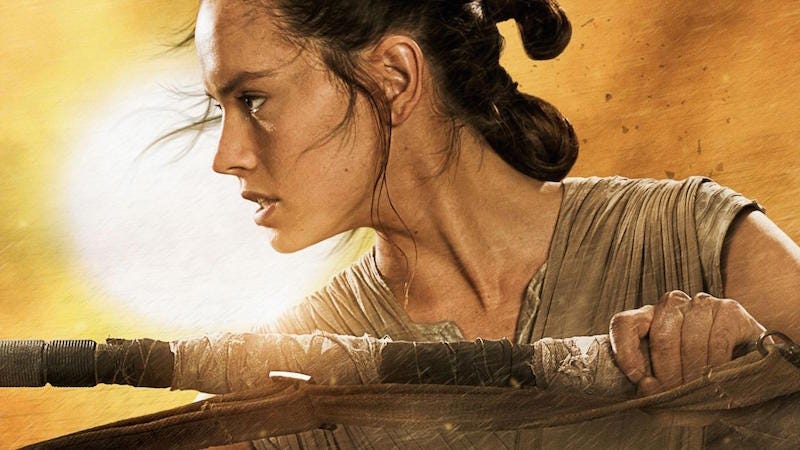
In terms of appearance, she comes off as someone who could put on a set of clothes from Wal-Mart, walk into a typical high school, and not generate much reaction. She doesn’t radiate the kind of beauty or royalty that often defines a Mary Sue. Even if she later proves to have a special destiny, that basically puts her in the same category as Luke Skywalker and every other legendary hero.
In terms of personality, she’s not exactly gushing with love and likability, which is another key trait of the Mary Sue. In many respects, Rey is somewhat cold and detached when she first shows up. She doesn’t whine or lament about her less-than-extraordinary life, nor does she eagerly jump at the chance to join the resistance when she encounters Finn. Hers is a more complex journey.
In terms of skill, this is where I think most of the Mary Sue accusations come from. I admit that I thought her excessive skill with the Force, flying the Millennium Falcon, and defeating Kylo Ren pushed the bounds of her character a bit too much. Even I was tempted to throw that label on her after seeing her accomplish so much with so little training.

However, when I step back and look at the larger plot, as well as incorporate the events of “Star Wars: The Last Jedi,” I see that those traits aren’t enough to warrant calling her a Mary Sue. They are a flaw in her character. That much, I don’t deny. Just having that flaw, though, doesn’t make her a Mary Sue.
I think “Star Wars: The Last Jedi” did a lot to help distance her from that label. It did so by having her make a few bad judgment calls while also not winning her battles quite as easily. When you look at the sequence of events in that movie, she didn’t actually succeed in most of what she sought out to do. Most of the success in that movie came from others, namely Kylo Ren, Finn, and Poe Dameron.
While I wouldn’t go so far as to say that Rey failed miserably in her efforts, I think “Star Wars: The Last Jedi” established that her skills have limits. She has all sorts of natural talent, but she doesn’t always apply it effectively. That’s not unusual for real and fictional characters. You could even make the argument that her missteps help really help to improve her likability.

A Mary Sue is supposed to be sickeningly perfect and hopelessly ideal, so much so that there’s no need for a plot since they just fix everything with their charm. Rey isn’t like that in either movie. In fact, the final battle in “Star Wars: The Last Jedi” didn’t really involve her. More than anything else, her role really complemented all the others by the end of the movie.
Now, I’m certain there are more than a few ardent “Star Wars” fans with X-wings tattooed on their chests who will claim I’m dead wrong. Those arguing that Rey is a Mary Sue have more than a few points to make and I don’t deny that some of those points are valid. I just don’t think they’re sufficient.
Rey is a great character, but one with some obvious flaws. I would call her overpowered and over-skilled, but you could levy that criticism against other iconic characters like Superman, Wonder Woman, and even Batman. Unlike those iconic characters, though, Rey is very new to the cultural landscape and her story still has room to unfold, as director Rian Johnson has pointed out.

I don’t doubt that debate over whether or not Rey is a Mary Sue will continue for quite some time. While I don’t think the next “Star Wars” movie will definitely resolve that, I’m of the opinion that it doesn’t have to be at this point. I think Rey has done enough to subvert this dreaded label.
She’s still a great character with a number of conceptual flaws. I think she has a bright future in our culture. She’ll always have her critics, but all great characters do. It’s just a matter of how they navigate that criticism. Given the cultural weight “Star Wars” carries, I’d say she’s handled it much better than most non-Jar Jar characters could ever hope.

How does anyone go about meeting impossible expectations for an iconic mythos with an insanely passionate fan base? Hollywood may be in the business of delivering fantasy on a scale that defies imagination, from talking animals to snakes on a plane, but even movie magic has its limits.
That brings me to “Star Wars: The Last Jedi,” by far, the most anticipated movie of 2017. It’s predecessor, “Star Wars: the Force Awakens,” kick-started a new trilogy on the foundation of the first one. Granted, it did so in a way that was very safe, very measured, and extremely low-risk. However, by all accounts, it worked.

With “Star Wars: The Last Jedi,” that approach just isn’t viable. The story set up in “Star Wars: the Force Awakens,” as well as the inherent differences in the characters involved, requires that there be at least some degree of novelty in this movie. The key is not pushing it beyond the point where it loses the magic that makes “Star Wars” special.
Before I try to judge just how much or how little “Star Wars: The Last Jedi” stayed on target, to so speak, there’s one point I want to make before I go any further. It’s probably the most important point for anyone assessing this movie, especially in the context of its iconic predecessors.
“Star Wars: The Last Jedi” is a GOOD movie.
I’m okay saying that with a straight face because by the standards of story, plot, spectacle, drama, heart, and emotional impact, this movie checks all the right boxes. It has so many powerful elements to go alongside its epic, sci-fi backdrop. There are memorable moments, iconic characters, and scenes that’ll brighten your day.
There are times when the movie gets your heart racing, regardless of whether this is your first “Star Wars” or you’ve watched “The Empire Strikes Back” a million times. There are also times when the movie drags, but with “Star Wars,” there’s a grading curve the size of 15 parsecs. Those high standards are bound to skew any review of “Star Wars: The Last Jedi.”
/cdn.vox-cdn.com/uploads/chorus_image/image/57909171/MV5BZDk4MGE0ZjAtNmE4Ny00ZWVhLWJjZGMtYjdhNjI5MWY3NTczXkEyXkFqcGdeQXVyNjUwNzk3NDc_._V1_.0.jpg)
While I’m willing to call this movie good, if not great, by those lofty standards, I still won’t put it in the same category as the original trilogy. I wouldn’t put it in the same category as the Jar Jar-fueled failure that was “The Phantom Menace,” either. This movie dares to be much more ambitious than “Star Wars: the Force Awakens” and that’s a good thing. Its ability to realize this ambition, however, is a very different story.
The movie hits the ground running. Like “The Empire Strikes Back,” this movie puts the Resistance led by Princess Leia in the same dire position we saw the Rebel Alliance in the original trilogy. Even though they scored a major victory at the end of “Star Wars: the Force Awakens,” it didn’t stop the First Order from continuing their ascent.
For much of “Star Wars: The Last Jedi,” the Resistance is on the ropes and on the brink of annihilation. Every moment counts from the moment the iconic screen crawl ends. There’s always a sense of action and tension. It makes clear from the beginning that this is the kind of movie where you’ll want to push your bladder capacity to the max.

This makes the movie exciting at every turn. It’s even exhausting, at times. However, it’s definitely a strength. When there are epic space battles, secret missions, and tense moments between characters, that strength only grows in terms of scope and scale. If you like adrenaline in your movies, “Star Wars: The Last Jedi” is basically made for you.
Usually, that kind of action comes at the cost of character development. Remarkably, this movie manages to avoid that. The respective stories of Rey, Finn, and Poe Dameron each continue in their own unique way. They each carry with them a great deal of importance for the overall story and they all come off as characters who are easy to root for and love.
Some do far better than others. Poe Dameron definitely benefits most from having more face time in this movie. Unlike “Star Wars: the Force Awakens,” he has much more influence over the direction of the plot. He stands in stark contrast to everyone around him, from Finn to Princess Leia. If there were a Poe Dameron fan club, then this movie would be their favorite, by default.
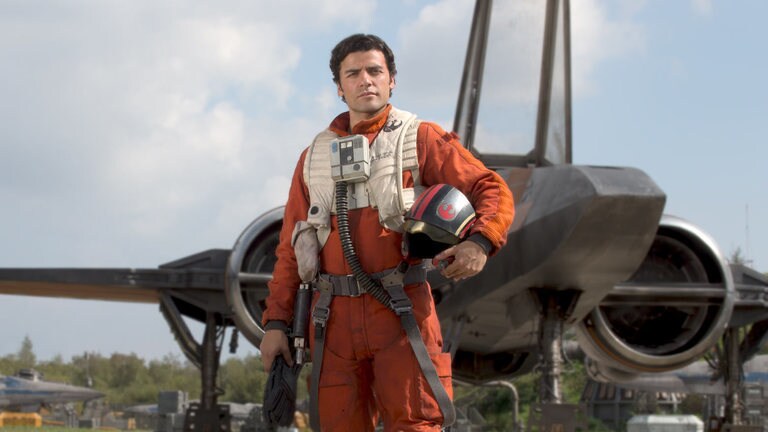
The other characters shine in their own ways, as well. Finn’s story is compelling in that it picks up where he left off. He’s still very much a reluctant participant in this conflict, much like Han Solo before him. He has his share of opportunities to run from or confront his past. His struggles in making those decisions help strengthen his character even more.
With Rey, though, it’s a bit more complicated. In fact, I would go so far as to say that “Star Wars: The Last Jedi” made it much harder for her to establish herself as an icon within the “Star Wars” mythos. The mystery of where she came from, who her parents are, and why she’s so strong in the Force really fall flat. However, she still finds plenty of ways to be compelling.
This brings me to parts of “Star Wars: The Last Jedi” that I think fell flat. I won’t say they didn’t work completely, if only because nobody like Jar Jar showed up. However, there are flaws in this movie that keep it from achieving the kind of iconic status of its predecessors.

If this movie has a major flaw, it has to do with how it handles Kylo Ren and Supreme Leader Snoke. These two were set up in “Star Wars: the Force Awakens” to be the new version of Darth Vader and Emperor Palpatine. However, the way their story plays out is very different and not necessarily in a good way.
Part of what made Darth Vader such an iconic villain was how far he fell to the dark side and how he managed to fight back, despite Emperor Palpatine’s influence. It’s clear that Kylo Ren is on a similar dark path, but there’s never an explanation as to how Supreme Leader Snoke corrupted him. There’s not even a sense of who Snoke is and why he reached out to Kylo Ren in the first place.
That lack of context makes many of the events surrounding Kylo Ren seem somewhat empty. He makes clear that he’s on a dark path and he wants to pursue that path to the utmost. Rey, in her need to see the light, tries to connect with him. It helps make for some of the most dramatic moments in the entire movie. However, without a greater context, they don’t have the kind of impact that made “The Empire Strikes Back” so great.
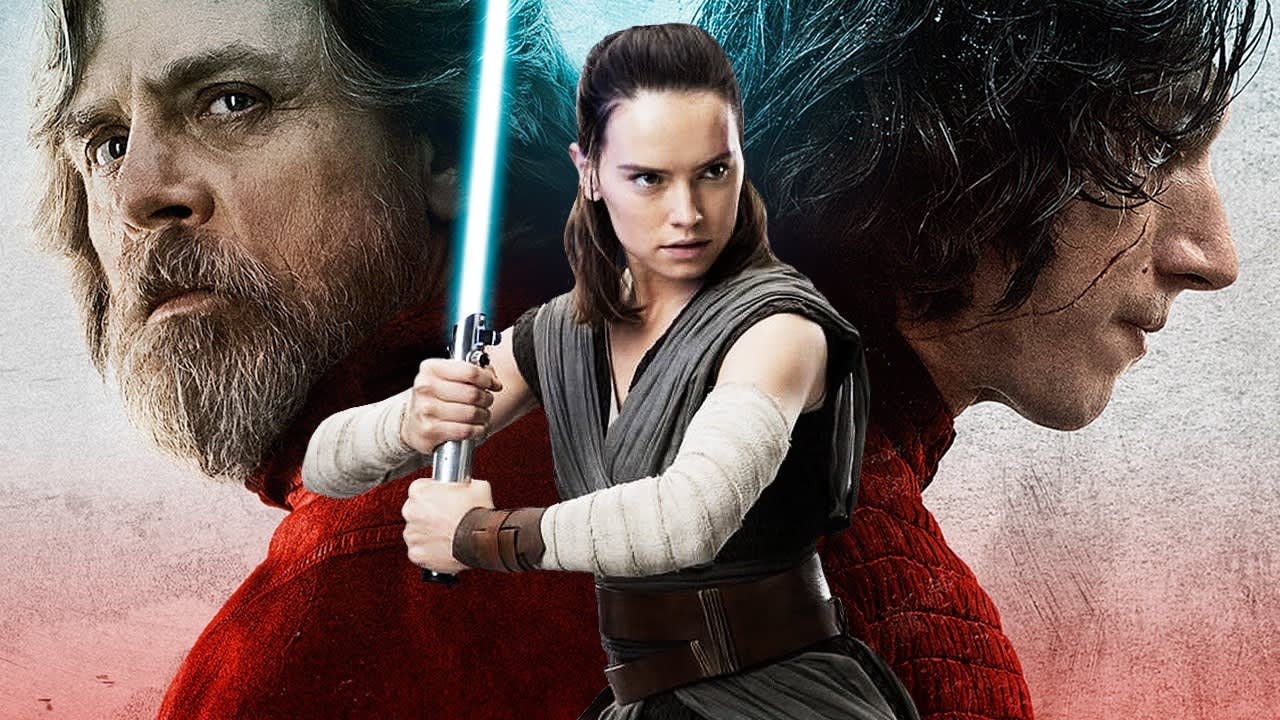
That still doesn’t stop Kylo Ren from stealing the show in his own way. Towards the end, he ends up going much further than Darth Vader or any Sith ever dared. More than anything else, “Star Wars: The Last Jedi” establishes Kylo Ren as the ultimate adversary for Rey, the Resistance, and the entire galaxy. There’s no redemption for him. There’s no chance he’ll come back to the light. Even Princess Leia acknowledged that.
It’s a huge departure and a very different direction that is somewhat new to the “Star Wars” mythos. Some fans may see that as a bad thing. Others may see it as a good thing. Personally, I think it’s good because it clearly sets this trilogy apart from the others. It makes clear that this trilogy is not going to follow the same patterns as the others. That’s exciting in some ways, but jarring in others.
Overall, I consider that approach a net positive for “Star Wars: The Last Jedi.” There are a few other minor flaws. Some of the newer characters, like Rose Tico, don’t really do much to endear themselves to the audience. They don’t pull a Jar Jar, though, and completely derail the story, either.
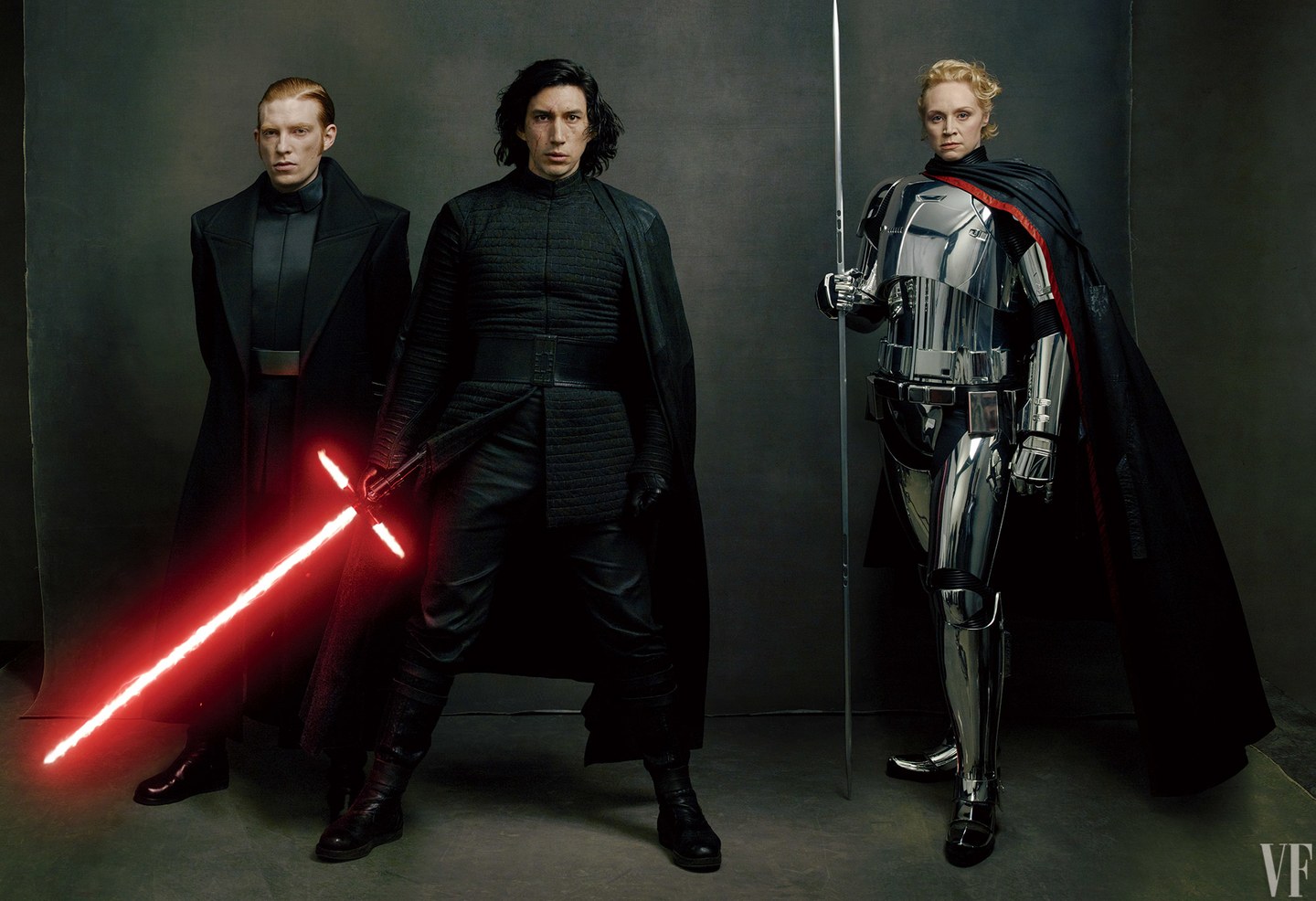
There’s a lot more that could be said about the flaws “Star Wars: The Last Jedi,” but those flaws are petty in the sense that they stem from the simple truth that this movie is not “The Empire Strikes Back.” Those expecting it to be that way are setting themselves up for disappointment. Those expecting similar themes will be disappointed too.
“Star Wars: The Last Jedi” doesn’t try to be “The Empire Strikes Back” and that’s a good thing. It tries to succeed in its own unique way and by most measures, it succeeds. The movie never drags. It never gets confusing or chaotic. Every story and sub-plot manages to come together in a fairly concise manner. It has polish and focus, as well as moments that are just pure fan service.
Again, this movie is not going to be as iconic as “The Empire Strikes Back” and that’s worth belaboring because, if some of the fan reactions to this movie are any indication, that’s what a lot of people were hoping for. Unlike “Star Wars: the Force Awakens,” this movie took chances and dared to do something different. In terms of expanding the breadth of the “Star Wars” mythos, those chances paid off.

More than anything else, though, “Star Wars: The Last Jedi” establishes the importance of maintaining hope in the face of the most dire situations. So much of this movie is spent with the good guys on the brink of defeat. At times, it seems as though they’re just delaying the inevitable. That makes the hope they inspire that much more special.
That’s what makes “Star Wars: The Last Jedi” a great movie experience. It doesn’t just expand the story of an iconic mythos. It does it in a way that inspires hope. Given how fragile hope often is in the real world in the face of some pretty grim headlines, that kind of hope is more important than ever.

Filed under Movie Reviews